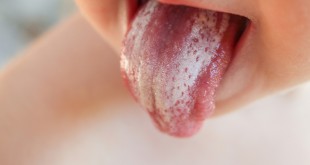Ask Anne…
 Question: I’m exclusively nursing my 4 month old. I’m going to have a D&C next week. I’m wondering if I can still breast feed right after having anesthesia, or if I should use the milk in my freezer and pump and dump. I’m planning on pumping right before I go in, so she can still eat while she and daddy wait for me, but I know I will be engorged and ready to feed her when I wake up.
Question: I’m exclusively nursing my 4 month old. I’m going to have a D&C next week. I’m wondering if I can still breast feed right after having anesthesia, or if I should use the milk in my freezer and pump and dump. I’m planning on pumping right before I go in, so she can still eat while she and daddy wait for me, but I know I will be engorged and ready to feed her when I wake up.
Answer: You don’t need to ‘pump and dump’ after surgery, with local or general anesthesia. The anesthesia that keeps you ‘out’ during the procedure is out of your system (and your breast milk) very quickly. You can breastfeed as soon as you wake up and feel alert enough to nurse. Ideally, someone can bring your baby to you and help you hold her while you nurse, because you may feel a little loopy and groggy at first. If you can’t put your baby to the breast right away, get someone to help you pump.
Moms who are in the hospital as inpatients having major surgery may not be ready to nurse right away, so it’s a good idea to pump to prevent engorgement. You can bring your own pump, or make arrangements beforehand with the hospital to provide one. Most hospitals have hospital grade pumps available, but ask in advance to make sure. Pain medications are fine to take as well, as only a small amount gets in your milk. Moms who have c-sections nurse immediately after the birth, and routinely take pain medications like Percocet or Vicodin, and they are not advised to ‘pump and dump’.
Patients are often given an anti anxiety medication like Valium before surgery. The small amount that gets into your milk will not hurt your baby. It’s not like you’re going to be strung out on pain pills, or addicted to Valium. You’re taking very small amounts for a very short period of time, and your baby is not a tiny preemie with an immature metabolic system. If you take large doses of these medications, they may make your baby a bit sleepy, so you may have to encourage him to stay awake for feedings for awhile.
You may want to pump a bottle so that someone can feed her after the surgery while you wait for the grogginess to wear off, but you definitely don’t need to pump and dump your breast milk.
Anne Smith, IBCLC
Breastfeeding Basics
 Breastfeeding Basics
Breastfeeding Basics




